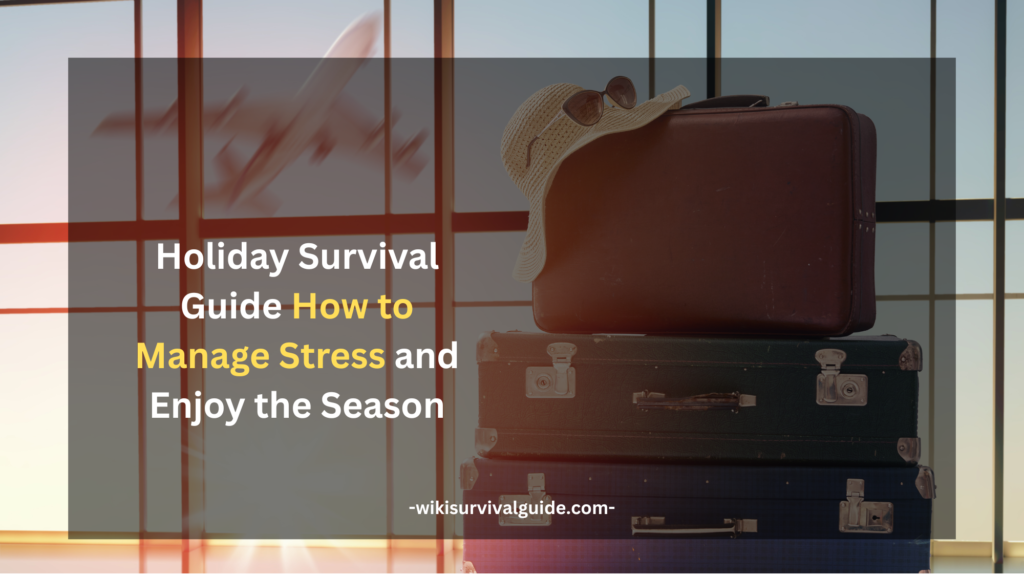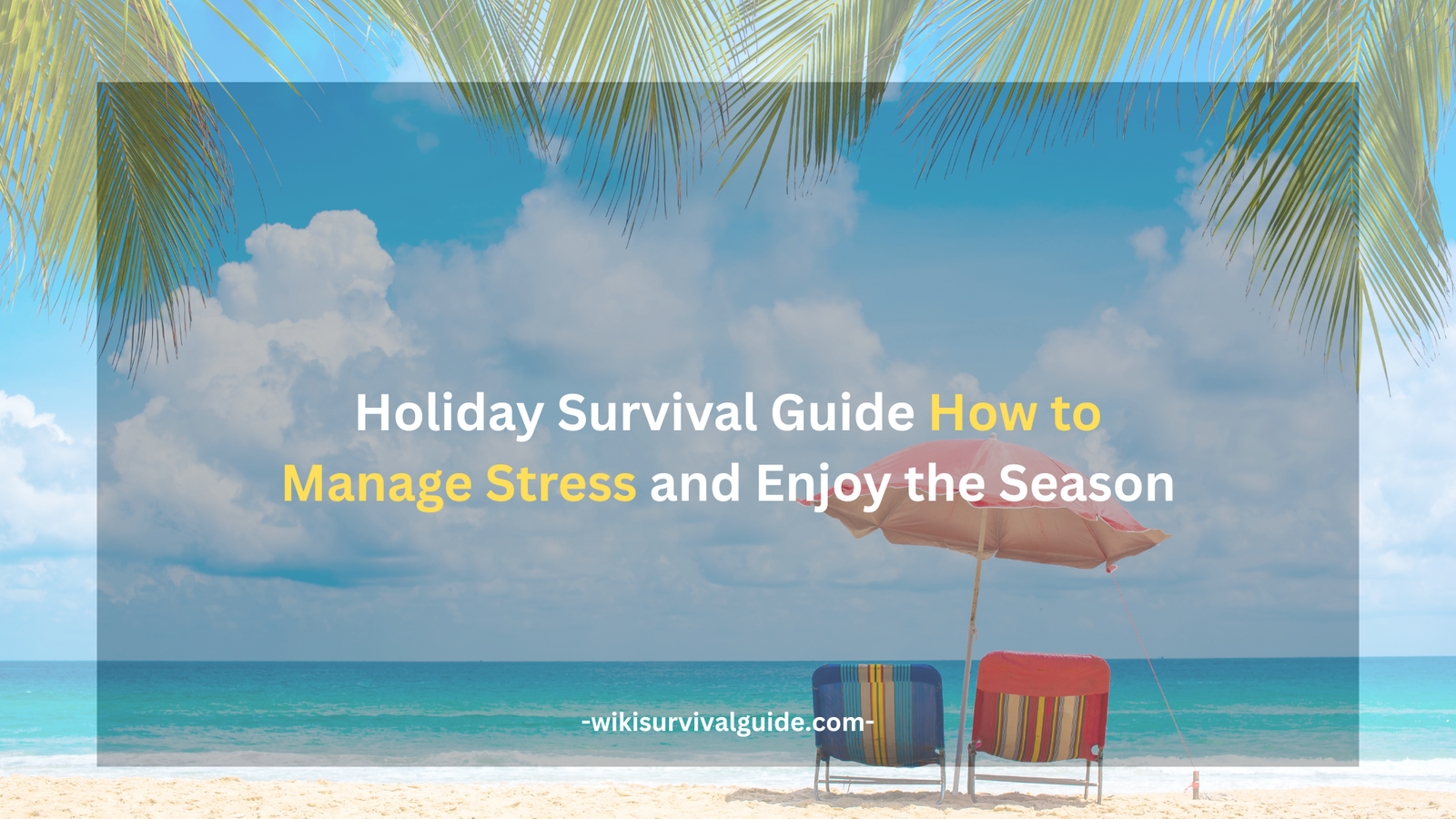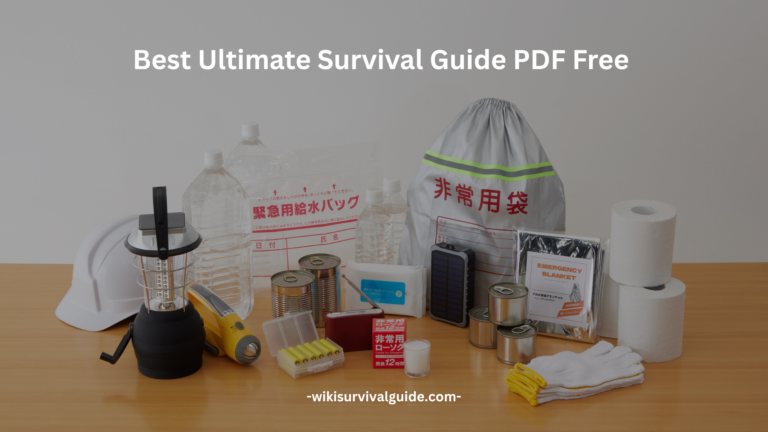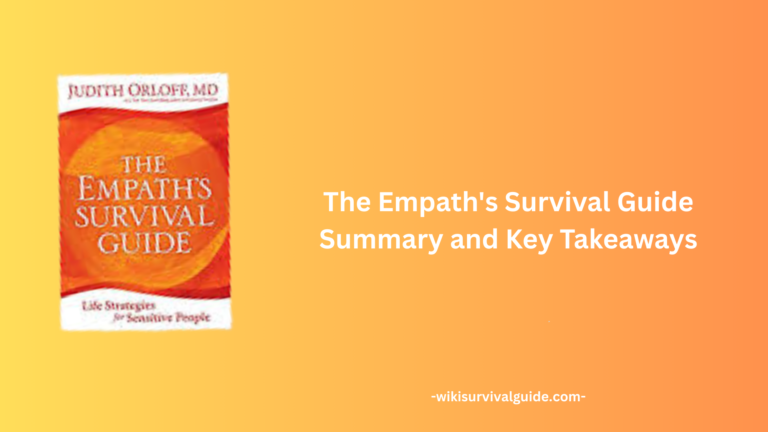The holiday season brings joy, connection, and celebration—but also stress, pressure, and emotional overload. From managing family dynamics to coping with grief, eating mindfully, and juggling travel plans, it’s easy to feel overwhelmed. This holiday survival guide offers practical tips to help you navigate the chaos with grace, humor, and peace of mind. Whether you’re flying solo, hosting guests, or just trying to keep your mental health in check, consider this your go-to resource for thriving—not just surviving—the season.

Stress-Free Holiday Planning
The holiday season can be overwhelming, but with some thoughtful planning, you can ease the stress and enjoy the festivities. Start by identifying your priorities and breaking tasks into smaller, manageable steps. Whether it’s gift shopping, cooking, or decorating, create a checklist and set realistic deadlines to avoid last-minute scrambling. Take advantage of online shopping and delivery services to save time and energy, and delegate tasks to other family members if possible. Don’t overcommit yourself—schedule breaks for self-care to recharge. Most importantly, remember that the holidays don’t have to be perfect. Simplify where you can to make room for the fun and meaningful moments. Planning ahead and staying organized can significantly reduce stress, leaving you with more time to enjoy the season.
Creating Realistic Expectations for the Holidays
The holidays often come with the pressure of perfection—whether it’s the perfect tree, meal, or gifts. Creating realistic expectations for the season is key to reducing stress. Start by recognizing that it’s okay if things don’t go exactly as planned. Avoid comparing your holiday experience to others’ social media posts or advertisements; remember that these highlight reels don’t reflect the whole picture. Focus on what matters most to you, whether it’s spending time with family, giving meaningful gifts, or enjoying quiet moments of reflection. Set boundaries for yourself—don’t over-schedule or try to please everyone. By setting realistic expectations and embracing imperfection, you can fully appreciate the joy of the season without the weight of unattainable goals.
Setting Boundaries with Family and Friends
The holidays often bring family dynamics to the forefront, and while they can be joyful, they can also lead to stress. Setting boundaries with family and friends is essential for maintaining your mental well-being. Before the season begins, consider your limits. Whether it’s saying no to certain events, asking for quiet time when needed, or limiting time spent with certain people, it’s okay to prioritize your peace. Clear and kind communication is key—be honest about what you can and cannot commit to. Setting boundaries not only protects your energy but also helps others understand and respect your needs. Remember that your well-being should come first, and it’s perfectly acceptable to advocate for yourself during this time.
Practicing Mindfulness During the Holidays
With the hustle and bustle of the holidays, it’s easy to get caught up in the chaos. Practicing mindfulness can be a powerful way to stay grounded and reduce stress. Take moments throughout the day to check in with yourself—whether it’s a few deep breaths, a short meditation, or simply being present during a meal. Mindfulness helps you focus on the present moment, reducing anxiety about the past or future. It also allows you to appreciate the little joys that can often be overlooked in the busyness of the season. Whether you’re wrapping gifts, sharing a meal, or taking a walk, mindfulness can transform everyday moments into meaningful experiences. By slowing down and engaging fully in each activity, you’ll find greater satisfaction and peace throughout the holidays.
Managing Financial Stress During the Holidays
The holidays can be financially draining, especially with gift-giving, travel, and celebrations. However, managing your finances wisely during the season can help reduce stress. Start by setting a budget for gifts and sticking to it. Be mindful of the costs of travel and other holiday activities—there are often creative, low-cost alternatives for family fun and celebrations. Consider homemade or personalized gifts, which can feel more meaningful and less expensive. If money is tight, don’t be afraid to communicate your financial situation to family and friends; most will appreciate the honesty. Lastly, remember that the holidays are about spending time with loved ones, not spending money. By taking control of your finances and setting limits, you can enjoy the season without the burden of debt or financial stress.
Staying Healthy During the Festive Season
The festive season is filled with indulgent foods and tempting treats, which can make it challenging to maintain healthy habits. However, staying healthy during the holidays is achievable with a bit of planning and mindfulness. First, focus on balance. You don’t have to deprive yourself of holiday favorites, but moderation is key. Make a conscious effort to include vegetables, lean proteins, and whole grains in your meals to help balance out the richer dishes. Stay hydrated, as holiday foods can sometimes leave you feeling sluggish. Drink plenty of water to help with digestion and to maintain energy levels. Try to avoid emotional eating by finding healthy coping mechanisms like journaling, talking to a friend, or taking a walk when you feel stressed. Additionally, prioritize sleep. The excitement and stress of the holidays can disrupt sleep patterns, but quality sleep is essential for both physical and mental health. Finally, schedule time for regular physical activity—whether it’s a brisk walk, a workout, or a family game of tag. Staying active will help you maintain energy levels and reduce stress, allowing you to enjoy the holidays to the fullest.
Tips for Staying Active Despite Holiday Busy-ness
During the holidays, it can be hard to find time to stay active due to busy schedules and social commitments. However, staying active is crucial for maintaining your health and keeping your energy levels up. One of the best tips is to incorporate movement into your day-to-day activities. Consider walking while you shop, taking the stairs instead of the elevator, or engaging in a family walk after dinner. If you have limited time, opt for short, high-intensity workouts like a 20-minute circuit that includes bodyweight exercises like squats, lunges, and push-ups. You can also turn holiday chores like decorating or cleaning into a fun way to stay active. Try to schedule your workouts in advance, just like any other appointment. If you have friends or family visiting, invite them to join you for a morning walk or a group workout session. Another helpful tip is to keep your workout gear handy. If you’re traveling, pack your workout clothes and shoes to help you stay on track. Finally, remember that consistency is key. Even if you can’t dedicate a lot of time to exercise, regular small bursts of activity can keep you feeling energized and healthy during the hectic season.
Balancing Work and Holiday Celebrations
The holidays are a time for joy and relaxation, but balancing work and holiday celebrations can often lead to stress. The key to balancing both is effective time management and setting clear priorities. Begin by planning ahead—try to complete tasks in advance and create a to-do list that aligns with both work and holiday commitments. Set aside specific time for work and allocate separate blocks of time for holiday festivities. It’s essential to be mindful of your work commitments, but don’t over-schedule holiday activities to the point where you feel overwhelmed. Communicate your schedule to your colleagues and family members, and be transparent about your availability during the holidays. If possible, take advantage of remote work options or flexible hours, so you can manage both work and celebrations without feeling overburdened. Remember, it’s okay to say no to certain events or work tasks that might cause unnecessary stress. Lastly, make sure to carve out some time for yourself. Balance doesn’t just mean managing external commitments—it also involves taking care of your mental and emotional well-being. By staying organized and focused, you can enjoy both your professional responsibilities and holiday celebrations without feeling like you’re sacrificing one for the other.
Self-Care Practices to Recharge During the Holidays
The holiday season, while full of joy, can also be exhausting. Between social events, shopping, and travel, it’s easy to neglect your own well-being. Self-care is essential during this time to recharge and stay grounded. First, make sure to prioritize sleep. With late nights and early mornings, it’s easy to lose track of your sleep schedule, but adequate rest is essential for maintaining energy levels and reducing stress. Take time for quiet moments to center yourself, whether through meditation, reading a book, or simply enjoying a cup of tea. Another great self-care practice is engaging in creative activities like baking, crafting, or journaling. These activities can provide a sense of accomplishment and relaxation, while also taking your mind off holiday stressors. Physical self-care is equally important—ensure you’re getting regular exercise, even if it’s a short walk or stretching routine. Lastly, make time for fun and laughter. Enjoying the company of loved ones, watching a favorite holiday movie, or sharing funny stories can help lift your mood and reduce anxiety. Taking time for self-care ensures that you can fully engage in the holiday season without feeling burnt out. Remember, you don’t need to do it all—allow yourself the space to relax, recharge, and enjoy the simple pleasures of the holidays.
Managing Grief and Loss During the Holidays
The holiday season can be particularly difficult for those experiencing grief or loss. While the world around you may be celebrating, it’s okay to acknowledge the pain and sadness that comes with missing a loved one. Managing grief during the holidays requires sensitivity to your emotions and self-compassion. First, acknowledge that it’s normal to feel sadness, and allow yourself to grieve in your own way. You don’t have to attend every holiday gathering or take part in every tradition if it feels overwhelming. Consider creating new traditions that honor the memory of your loved one, such as lighting a candle in their memory or sharing stories about them with family and friends. If you need space, don’t hesitate to take time for yourself. Be gentle with your expectations—there’s no need to feel pressured to be festive if you’re not ready. Support is crucial during this time, so lean on friends, family, or grief counseling if necessary. Many people find comfort in joining a grief support group, such as GriefShare, where they can connect with others who understand their feelings. Finally, remember that the holidays are not a one-size-fits-all experience, and it’s okay to navigate them in a way that works for you. It’s important to give yourself grace as you work through your grief while also finding ways to honor your loved one’s memory during this season.
Coping with Holiday Anxiety and Overwhelm
The holiday season, while full of joy, can also bring a significant amount of stress and anxiety. Between the expectations of family gatherings, social obligations, and preparing for celebrations, it’s easy to feel overwhelmed. Learning to manage holiday anxiety requires a proactive approach and mindfulness.
Acknowledge Your Feelings
First and foremost, it’s important to acknowledge your feelings of anxiety. It’s completely normal to feel stressed or overwhelmed, especially if you’re juggling multiple responsibilities. Understanding that your emotions are valid can help reduce the internal pressure you might place on yourself. It’s okay to feel anxious, and recognizing it is the first step to managing it effectively.
Practice Deep Breathing and Mindfulness
To calm your nerves, consider practicing deep breathing techniques or mindfulness exercises. These practices help to focus your mind, reduce stress, and allow you to stay grounded during moments of chaos. You can even incorporate short meditation sessions into your daily routine. Apps like Headspace or Calm provide guided meditations that can help you manage stress levels and stay centered.
Prioritize Self-Care
Taking care of your physical and emotional well-being is essential during the holidays. Get enough rest, eat balanced meals, and make time for physical activity. A short walk in nature or a quick yoga session can do wonders for reducing stress. Regular exercise has been shown to reduce anxiety levels, boost mood, and improve overall health.
Set Realistic Expectations
One major contributor to holiday stress is setting expectations that are too high. Whether it’s about hosting the perfect holiday dinner, buying the perfect gifts, or attending every social event, these pressures can lead to overwhelming feelings. It’s important to set realistic goals for yourself and recognize that it’s okay if things aren’t perfect. Lowering your expectations and allowing room for imperfection can alleviate much of the anxiety that comes with the season.
Learn to Ask for Help
Don’t hesitate to ask for help when things become too much. Whether it’s asking a family member to lend a hand with preparations or hiring extra help for holiday cleaning, delegating tasks can lighten your load. Sharing responsibilities with others can prevent you from feeling overwhelmed and create a more enjoyable holiday experience for everyone involved.
Tips for Stress-Free Holiday Travel
Traveling during the holidays can be exciting but also stressful, especially with the hustle and bustle at airports or on the road. To make your holiday travel stress-free, preparation and planning are key.
Plan Ahead
One of the most important tips for stress-free travel is to plan well in advance. This includes booking flights, accommodations, and rental cars early to avoid last-minute stress. The earlier you book, the more flexibility you’ll have in choosing the best travel times and avoiding peak travel days, which tend to be more crowded and expensive.
Pack Smart and Early
Packing early helps ensure that you won’t be rushing through your bags at the last minute. Make a checklist of everything you’ll need and try to pack light. Be sure to include essentials such as medications, chargers, travel documents, and a few snacks. If traveling by air, remember that airlines have specific restrictions on the number of bags and weight limits.
Manage Your Time Wisely
Time management is crucial during the holidays, particularly when traveling. Aim to leave earlier than necessary to avoid last-minute panic. Be sure to account for potential delays, especially at busy airports or during winter weather. Arriving with plenty of time allows you to stay calm and avoid unnecessary stress. Additionally, consider booking flights with more layover time in case of delays or cancellations.
Stay Calm in Case of Delays
Travel delays are inevitable during the holiday season. Whether due to weather, traffic, or airport congestion, it’s important to stay calm and flexible. Having a positive attitude can make a huge difference in how you handle unexpected setbacks. Bring books, music, or games to help pass the time, and don’t forget to keep your phone charged in case you need to stay updated with flight changes.
Consider Alternative Travel Methods
If possible, consider alternative methods of travel such as taking a train, bus, or even driving yourself. These options may provide more control over your schedule, reduce anxiety, and offer a more relaxed journey. Just be sure to plan ahead for any potential road closures or travel disruptions that could impact your trip.
Creating Healthy Holiday Meals Without Overindulging
The holiday season often brings an abundance of rich foods, from festive treats to indulgent meals. However, it’s possible to enjoy these seasonal delights while maintaining a balanced and healthy approach.
Plan Your Meals Ahead of Time
One of the best ways to avoid overindulging during the holidays is to plan your meals ahead of time. Take time to map out your menu and try to incorporate healthier alternatives to traditional holiday dishes. Include lean proteins, vegetables, and whole grains to keep your meals nutritious. Consider using herbs and spices to add flavor without extra calories.
Practice Portion Control
Overeating is a common pitfall during the holiday season, but practicing portion control can help. Instead of piling your plate high with everything, try serving smaller portions of each dish. This way, you can sample a variety of foods without overloading your plate. You can always go back for seconds if you’re still hungry, but this strategy helps prevent overeating in one sitting.
Focus on Nutrient-Dense Foods
While it’s easy to reach for sugary or fatty treats, focus on nutrient-dense foods that will provide lasting energy. Fill your plate with colorful vegetables, fruits, and lean meats. Foods high in fiber, protein, and healthy fats will help you stay full longer, reducing the temptation to overeat. For dessert, consider healthier options like fruit salad or yogurt parfaits.
Drink Water Between Meals
It’s easy to confuse thirst with hunger, especially when surrounded by delicious holiday foods. Make it a habit to drink water throughout the day, particularly between meals. Staying hydrated will help you feel more satisfied and curb unnecessary snacking. Plus, water aids digestion, which is especially important when indulging in rich holiday meals.
Allow Yourself to Enjoy in Moderation
Remember, the holidays are about celebrating and enjoying time with loved ones, not stressing over every bite. It’s okay to indulge in your favorite treats, but the key is moderation. Allow yourself small portions of indulgent foods, savor them, and move on. There’s no need to feel guilty or overindulge in order to enjoy the season’s flavors.
The Importance of Saying No: How to Avoid Holiday Burnout
Saying “no” can be a powerful tool during the holiday season, especially if you’re trying to avoid burnout. With all the invitations, obligations, and commitments that come with the season, it’s crucial to recognize your limits and prioritize self-care.
Recognize Your Limits
One of the first steps to avoiding holiday burnout is recognizing your own limits. It’s easy to get caught up in the hustle and bustle of the season, but overcommitting yourself can lead to exhaustion. Take stock of your energy levels, your time, and your emotional capacity. Know when you’ve reached your limit, and give yourself permission to say “no” when you need to.
Prioritize Your Well-Being
Your well-being should always come first. If you feel overwhelmed or stressed, consider canceling or declining events that aren’t essential to your well-being. Instead, choose activities and gatherings that bring you joy and fulfillment. It’s okay to say no to things that cause you stress or take up too much of your time. Remember, self-care is not selfish—it’s necessary.
Practice Assertiveness
Saying no doesn’t have to be uncomfortable. Practice assertiveness in your communication. You don’t owe anyone an elaborate explanation for why you can’t attend or participate in something. A simple, “I’m unable to commit this time,” is all you need. Being assertive allows you to protect your energy and avoid feeling overwhelmed by others’ expectations.
Delegate Responsibilities
Another way to prevent burnout is by delegating responsibilities. Whether it’s asking a family member to help with holiday decorations or letting a friend take over planning for a gathering, sharing the load can alleviate stress. You don’t have to do everything yourself—delegating tasks is an effective way to preserve your energy for the things that matter most.
Reconnect with What Truly Matters
Ultimately, the holidays are about creating meaningful memories with the people you care about most. If you find yourself overwhelmed by the chaos of social events or the pressure to make everything perfect, take a step back. Reconnect with the true meaning of the holidays—spending quality time with loved ones and enjoying the moments that truly matter. Saying no to unnecessary obligations helps you focus on what brings you joy and peace.
Managing Expectations Around Gift-Giving
Gift-giving is a cherished holiday tradition, but the expectations surrounding it can be overwhelming. Managing these expectations is key to having a joyful and stress-free holiday season.
Set a Realistic Budget
One of the first steps in managing gift-giving expectations is to set a realistic budget. The pressure to buy expensive gifts can lead to financial strain, especially during the holiday season. Determine how much you’re comfortable spending on each person and stick to it. Remember, thoughtful gifts don’t have to be expensive. Personal touches and meaningful gestures often go much further than pricey items.
Focus on Thoughtfulness Over Expense
When it comes to gifts, the thought behind the present matters more than the price tag. Instead of worrying about buying the most expensive or extravagant gifts, focus on thoughtful, meaningful presents that align with the recipient’s personality and interests. Personalized gifts, such as custom-made items or handwritten letters, often hold much more value than material goods.
Embrace Alternative Gift-Giving Ideas
If traditional gift-giving feels overwhelming or expensive, consider alternative gift ideas that don’t involve material items. Experiences, such as cooking classes, concert tickets, or a day trip, can be wonderful gifts that create lasting memories. You can also opt for charity donations in someone’s name, or even offer your time by providing services such as babysitting or home-cooked meals.
Communicate Openly with Loved Ones
If gift-giving expectations are causing stress, don’t hesitate to communicate openly with your loved ones. Many people feel the pressure to exchange gifts because it’s expected, not because it’s necessary. Have a conversation about how you feel and suggest new traditions, such as setting a gift budget or exchanging handmade gifts. Being honest with each other can help reduce the pressure and allow you to enjoy the holidays without the financial burden.
Let Go of Perfectionism
Lastly, remember that holiday gift-giving doesn’t have to be perfect. The most important thing is the gesture and the thought behind the gift. Don’t let the pressure to find the “perfect” gift ruin your enjoyment of the season. Embrace the imperfections and enjoy the holiday spirit without letting expectations get in the way.
Finding Time for Yourself Amid the Holiday Hustle
The holiday season often brings a whirlwind of activities—shopping, cooking, decorating, and socializing. While these tasks can be joyful, they can also be draining. That’s why it’s important to carve out time for yourself amid the chaos. Prioritizing personal time isn’t selfish; it’s necessary for emotional and physical well-being. Start by scheduling short breaks during your day just for you. Whether it’s 15 minutes with a cup of tea, a quiet walk, or journaling your thoughts, small moments of solitude can rejuvenate your spirit. Setting boundaries is another essential part of finding time for yourself. You don’t have to attend every event or fulfill every request. Politely decline where needed and remember that saying no to others often means saying yes to your own peace. Technology can also be a tool—use reminders or calendar blocks to schedule self-care, so it becomes part of your holiday routine. Most importantly, be intentional with your time. Even amidst giving to others, don’t forget to give to yourself.
Supporting Mental Health Through the Holidays
Mental health challenges often intensify during the holiday season due to expectations, grief, or feelings of loneliness. Supporting your mental health begins with awareness and self-compassion. Acknowledge your emotions and accept that it’s okay not to feel festive all the time. Practicing mindfulness can help—whether through meditation, breathwork, or simply being present during a quiet moment. Maintaining healthy habits such as regular sleep, exercise, and balanced eating also plays a big role. Stay connected with your support network. Whether it’s friends, family, or a mental health professional, talking about your feelings can ease the burden. Avoid overcommitting and give yourself permission to rest. If the season becomes too much, don’t hesitate to seek help. Therapy, support groups, or even online mental health services can offer valuable guidance. The holidays don’t have to be perfect, but they can still be emotionally safe and manageable with the right support.
Holiday Survival Tips for Introverts
For introverts, the holiday season can be both wonderful and overwhelming. Social gatherings, endless conversations, and crowded events can quickly become draining. The key to surviving the season as an introvert is to pace yourself and build in time to recharge. Plan your schedule so that you aren’t attending back-to-back events. For every social outing, try to set aside quiet time before and after to restore your energy. When at gatherings, find small breaks by stepping outside or finding a quiet room. Choose meaningful interactions over large group conversations, and don’t feel pressured to stay longer than you’re comfortable with. Communicate your needs to close friends or family—they’ll be more understanding than you think. Engage in holiday activities that suit your temperament, such as reading by the fire, making handmade gifts, or enjoying solo walks with festive music. The holidays can still be magical for introverts—with a little planning and self-awareness, you can fully enjoy the season on your own terms.
Staying Sane While Hosting Holiday Gatherings
Hosting during the holidays is rewarding, but it can also be a major source of stress. Between meal planning, decorating, and entertaining guests, it’s easy to feel overwhelmed. To stay sane, start by simplifying your plans. Instead of preparing an elaborate menu from scratch, consider potluck-style gatherings where everyone contributes. Create a checklist and timeline to stay organized and reduce last-minute chaos. Delegate tasks—ask someone to handle drinks, another to coordinate music, and someone else to manage seating or games. Accept that not everything will be perfect. Focus on creating a warm and welcoming environment rather than a flawless one. Build in downtime for yourself before and after the event to unwind. Take breaks during the gathering too—it’s okay to sneak away for a few minutes of quiet. Most importantly, keep your sense of humor. Hosting should be enjoyable, and a few mishaps often become the most memorable and cherished moments.
Reflecting and Creating New Traditions After a Stressful Holiday Season
After a busy or emotionally challenging holiday season, it’s helpful to take time to reflect. Consider what went well, what stressed you out, and what you might want to change next year. Reflecting doesn’t mean focusing on regrets—it means learning from experience to create a more fulfilling future. Ask yourself what parts of the holiday felt most meaningful. Was it quiet time, certain activities, or specific people? Use this insight to shape new traditions that align with your values and well-being. For example, if large gatherings felt overwhelming, you might plan smaller, more intimate celebrations next year. If gift-giving caused financial stress, you could propose a family gift exchange or set spending limits. Reflection can also be shared—encourage loved ones to talk about what they enjoyed and what they’d like to change. This open dialogue fosters growth and connection. Most importantly, give yourself grace. Each holiday season is a new opportunity to design experiences that nourish joy, not just obligation.
Conclusion:
Holidays don’t have to be perfect to be meaningful. With the right strategies, self-care, and boundaries in place, you can move through the season with less stress and more joy. Use this holiday survival guide as your toolkit—whether you’re celebrating with a crowd or keeping it low-key. Remember, the real magic of the holidays is in the moments you protect for yourself and those you love.
FAQs:
How do I stay calm during chaotic family holidays?
Staying calm involves setting realistic expectations and boundaries. Try practicing mindfulness, taking breaks when needed, and communicating your needs clearly. Deep breathing exercises or stepping outside for a moment of peace can also help in high-pressure moments.
What’s the best way to deal with grief over the holidays?
Allow yourself to feel what you’re feeling without judgment. It’s okay to set aside time for quiet reflection or to seek support through grief counseling or a group like GriefShare. Find new traditions that honor your feelings and help you heal, and don’t hesitate to take breaks from social gatherings if you need them.
Can I stay healthy without dieting during the holidays?
Absolutely! Focus on moderation, balance, and mindful eating. Rather than restricting yourself, enjoy your favorite foods in reasonable portions. Incorporate healthy options into your meals and stay active by going for walks or doing light exercises to balance out the indulgence.
How do I politely avoid political conversations at the table?
It can be tricky, but it’s all about redirecting the conversation with tact. Politely steer discussions toward neutral topics like favorite holiday memories, food, or travel plans. If necessary, gently set boundaries by expressing that you’d prefer to avoid certain topics for the sake of maintaining a peaceful atmosphere.
Are there any printable or PDF holiday survival guides?
Yes, many websites and organizations offer downloadable holiday survival guides in PDF format. These often include tips for managing stress, meal planning, fitness routines, and more. Check sites focused on self-care or mental health for these helpful resources.




Leave a Comment